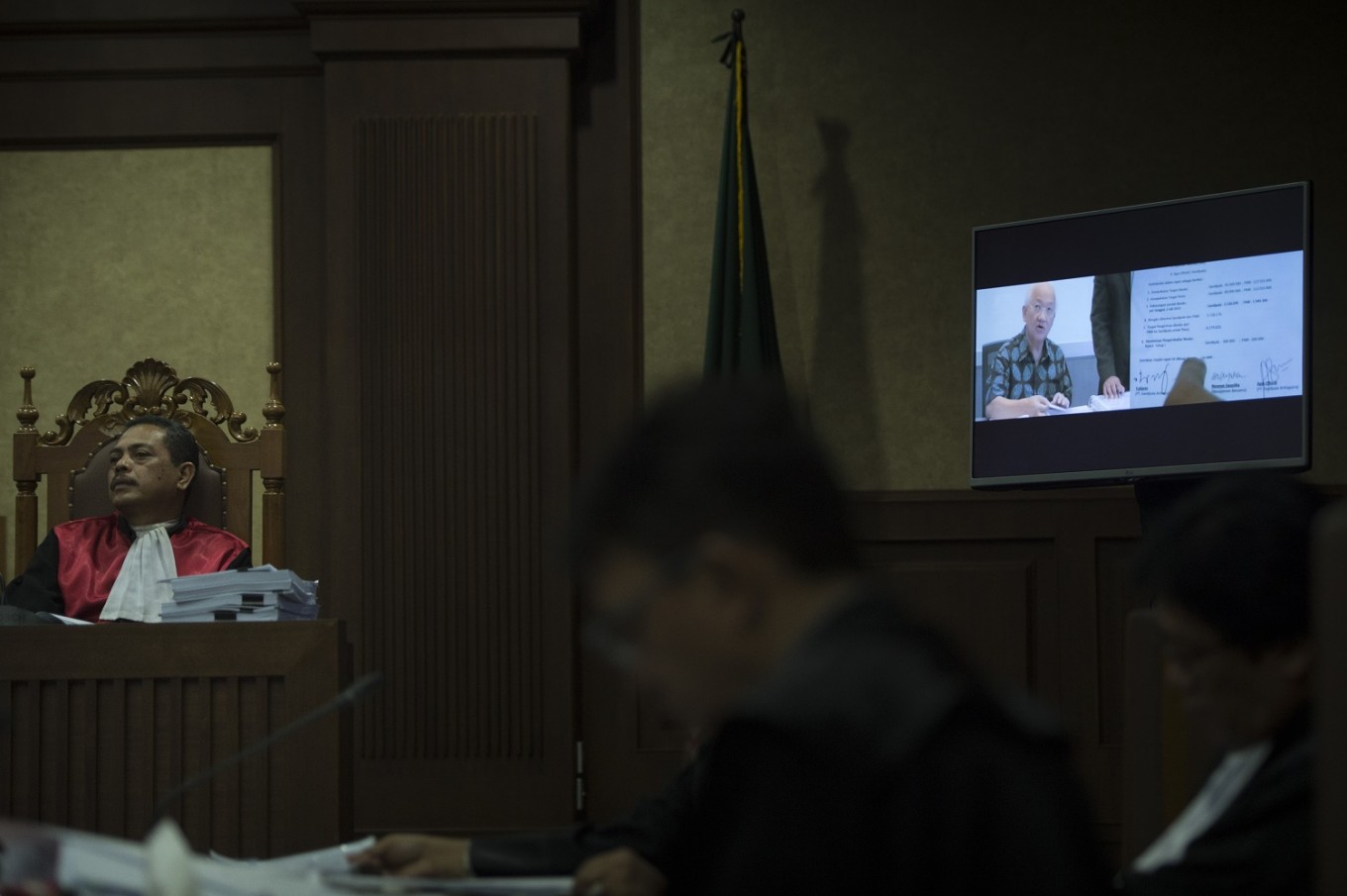Popular Reads
Top Results
Can't find what you're looking for?
View all search resultsPopular Reads
Top Results
Can't find what you're looking for?
View all search resultsSingapore's moment of truth
Despite high optimism among Indonesian officials, public suspicion persists regarding Singapore's sincerity, particularly concerning the extradition treaty.
Change text size
Gift Premium Articles
to Anyone
D
uring President Prabowo Subianto's recent visit, Singapore's Prime Minister Lawrence Wong assured his counterpart that both nations will soon reap the benefits of three pacts they signed three years ago, including a mutual extradition treaty. The key question remains: When will these advantages materialize, especially concerning extradition?
PM Wong recognizes the extradition treaty's significance for Indonesia, aiming to dispel the long-held belief that Singapore is a safe haven for Indonesian corruption fugitives who flee with illicitly gained wealth. He recently announced that the first extradition case is now before Singaporean courts, a result of close collaboration between law enforcement agencies of the two ASEAN neighbors.
This concrete step, Wong told a joint press conference, demonstrates the two countries' ability to resolve complex issues. For Indonesia, it's crucial to prove that Singapore is no longer a sanctuary for its corrupt elite.
The extradition treaty, signed in 2022 along with the Flight Information Region (FIR) and a defense cooperation agreement (DCA), is designed to enhance cooperation against transnational crimes like corruption and money laundering. It covers 31 types of offenses, including bribery, with an 18-year retroactive effect.
Indonesia has sought an extradition treaty with Singapore since the 1970s. Given Singapore's status as a major financial hub and its close geographical proximity to Indonesia, it has been a frequent destination for individuals seeking to evade justice in Indonesia
While Singapore consistently ranks among the least corrupt nations globally, Indonesia still grapples with corruption, collusion and nepotism; the rallying cry of reforms back in 1998. Singapore is third in the 2024 Transparency International's Corruption Perception Index, while Indonesia ranked 99th out of 180 countries in the same report, scoring 37 out of 100. This disparity suggests Indonesia should address its internal corruption issues before solely blaming external factors.
Despite high optimism among Indonesian officials, public suspicion persists regarding Singapore's sincerity, particularly concerning the extradition treaty. There is a fear that Singapore will primarily benefit from the other two agreements.
Previous attempts to finalize an extradition treaty faced repeated roadblocks in the past. A treaty was signed in 2007, but the House of Representatives deemed that the DCA and FIR agreements disproportionately favored Singapore's security interests, making it reluctant to ratify the extradition treaty without a more balanced overall package.
According to Wong, the three expanded framework agreements, which have been ratified by the parliaments of the two countries, form the foundation for collaboration in defense, airspace management and law enforcement between the two countries.
Both nations celebrate robust economic ties, with Singapore's foreign direct investment in Indonesia reaching US$20.1 billion in 2024, representing one-third of Indonesia's total realized foreign investments that year.
However, the ongoing appeal case of businessman Paulus Tannos in the Singaporean court is a litmus test for the effectiveness of the extradition treaty. The Indonesian fugitive, who is accused of involvement in the electronic ID procurement scandal, is employing all legal avenues to prevent his extradition to Indonesia. Tannos has been a Singapore permanent resident since 2017 and was arrested in Singapore at Indonesia's request.
Jakarta has submitted the required documents to demonstrate Tannos' accountability in the high-profile graft case. Despite high optimism among Indonesian senior officials regarding Tannos' eventual extradition, some privately express concern that Singapore might reject the request, acknowledging the complexity of this inaugural extradition case under the new treaty.
Beyond individual extraditions, the effectiveness of the three treaties hinges on Indonesia's commitment to combating corruption. President Prabowo has vowed to eradicate this chronic issue, a pledge echoed by his predecessors, as evidenced in the ongoing investigations into numerous corruption scandals involving state-owned enterprises and ministries.
The repatriation of graft suspects like Tannos will mean little if Indonesia lacks the political will to bring all perpetrators to justice and recover the state assets they have stolen.











